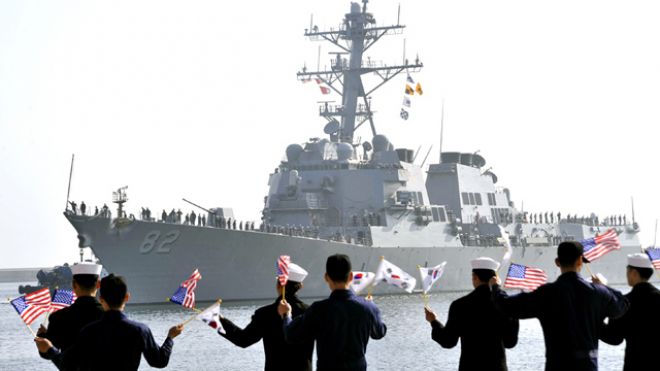Finland’s relationship with NATO has a long and complicated history. Despite actively taking part in its activities and offering support for the Alliance, the Finnish government all the same rejects to apply for a membership in the organization in line with popular opinion, while retaining an option of applying in the future.
Historical context
At the core of Finland’s approach to NATO, and the NATO debate in Finland, is its history with the Soviet Union. Despite the dominant historical narrative of ‘heroic defence victory’ against the Soviet aggression during the Continuation War (1941-44), Finland was left impoverished, traumatised and at the mercy of its superpower neighbour and maintaining friendly relations became the central national interest in order to avoid occupation under the Finno-Soviet Treaty (1948).
Subsequently, two particular features emerged: Firstly, Finland adopted a policy of neutrality as it was the only option available that would preserve Finnish independence and democracy. Secondly, Finnish foreign policy became instrumentalised in its domestic politics, as maintaining friendly relations with Kremlin became the ultimate national interest. In the Cold War era, it transformed into a political tool deployed to marginalise and silence dissenting voices in the Parliament under the guise of national security. These political realities had a significant impact on how NATO was perceived in Finland. It was perceived as an extension of American military leadership, and part of the superpower rivalry threatening Finnish security. The Atlanticist image of a security community of likeminded liberal democracies was marginal, and effectively silenced within the political domain.
By the end of the Cold War, Finland had moved away from functional neutrality to an emotional commitment to the idea as the ideas of social equity and international activism were integrated into Finnish concept of neutrality. However, the gradual deconstruction of functional neutrality had little additional impact, as Finnish preconceptions about NATO, a special relationship with Soviet Union, and the negative repercussions of military alignment remained the same.
NATO and Finnish military non-alignment
Finland’s abandonment of functional neutrality was not followed by an explicit policy change following Finland’s integration with the West, even as it acquired a security dimension. Instead, Finland continuously increased its cooperation with NATO and committed to EU’s nascent security infrastructure while continuing its policy of military non-alignment. Finland became involved with the Rapid Deployment Force, and generally bolstered its relationship with NATO. In 1994, it joined the Partnership for Peace (PfP) program, PfP Planning and Review Process in 1995, and the Euro-Atlantic Partnership Council in 1997. Additionally, The Finnish army has taken part in NATO’s peacekeeping missions in Bosnia, Kosovo and is currently deployed in Afghanistan. In this April, Finland agreed to increase its commitment to Afghanistan to 195 soldiers from 142.
Interestingly, the above underlines the fundamental problem of Finland’s military non-alignment. Unable to shed the familiarity of neutrality, Finland was and is in the midst of an identity crisis as it looks for a new role in the post-Cold War world. A significant part of this world is increasing integration with EU, and with NATO, which has an overlapping military capability with majority of EU countries. Regardless, Finland’s position on NATO membership has remained largely unchanged since the 1990’s. While it cooperates with the Alliance, it only retains an option to join, should Finland’s perception of its security, and of NATO, change. This is partly due to the historic perceptions of NATO dating back to the early years of the Cold War. In fact, NATO’s operations in the Balkans and Afghanistan were met with considerable scepticism, negatively impacting the popular support for a Finland’s NATO membership.
Three approaches to NATO
Generally, the NATO debate has been extremely politicised at the popular level, which is reflected in the polls conducted about popular views on NATO membership. In recent years, only one in ten Finns remains undecided on the matter. The opposition to membership in the Alliance has remained relatively consistent over the recent years. Around twenty-five percent supports joining the alliance, whereas a clear majority of approximately two-thirds oppose NATO membership. The most recent poll, conducted in April 2010, showed fifty-six percent against NATO membership whereas twenty-six percent was for it. Such data is partly explained by the trauma of Winter War (1939-40), Continuation War, and Lapland War (1944-45), which has generated widespread anti-war sentiments in Finland, facilitating additional reservations against the Alliance. In times of conflict, whether NATO is involved or not, public opinion shifts slightly away from supporting NATO membership. Interestingly, although a fear of Russian invasion remains a fundamental driver of Finnish defence policy, not even a Russian war on a smaller neighbour, as happened with Georgia in 2008, changed the belief that Finns should prepare for their own defence rather rely on the Alliance’s Article V.
However, despite the public opinion’s consistency in opposing NATO membership, the debate within the political circles is everything but monotonic. Instead there has been an entrenchment between the traditional right, spearheaded by the National Coalition, which largely sees NATO in Atlanticist terms and as a natural continuum for Finland’s policy of integration with the West, and the traditional left, led by the Social Democratic Party, which still sees NATO in Cold War terms and a membership as a potential threat to Finnish security. This dynamic is made particularly problematic by Finland’s system of dual representation in foreign policy matters regarding European integration. In the past year, there has been an increasing strife between President Halonen from the Social Democratic Party (SDP), and Prime Minister Vanhanen from the Centre Party on the direction of Finnish foreign policy.
Interestingly, the Finnish military strongly supports joining NATO. A recent poll conducted by Officers’ Union shows that fifty-five percent of Finnish military officers favour applying NATO membership, whereas thirty-five percent espoused negative views. Additionally, forty-six percent strongly disagreed on that Finnish membership application to NATO should be decided by national referendum, underlining the impact of popular opinion on Finland’s NATO politics.
The debate
Since the 1990’s, Finland’s approach to NATO has largely been dichotomous. While it has increasingly cooperated and integrated with the Alliance, the debate in Finland has been dominated by the popular opinion, which remains sceptical towards the Alliance. Hence, while NATO has consistently been featured in Finnish political debates, it has had a limited impact on Finnish policy vis-à-vis the Alliance.
However, within the next three years, there is considerable change for changing these dynamics. Although there has been little division between President Halonen and PM Vanhanen when it comes to NATO, the political status quo is likely to be changed by the Parliamentary Elections in 2011 as the NATO friendly National Coalition consistently polling as the frontrunner, and the Presidential Elections in 2013 as President Halonen is ineligible after serving two consecutive terms. Should the National Coalition win either of the upcoming elections, the status quo of Finland’s NATO approach – and debate – would likely crumble. Even though NATO membership will hardly be a central theme in the upcoming Parliamentary Elections as more pressing issues dealing with immigration and economy have taken the front stage, the NATO debate will likely continue if not intensify after the elections, the latter being more likely in case of a National Coalition victory. However, should the current political status quo be preserved, the possibilities for a renewed and rejuvenated NATO debate remain minimal.
The public opinion will no doubt remain as a barrier for Finnish membership talks with the Alliance. This was last demonstrated in August 2008 when Foreign Minister Alexander Stubb expressed that he viewed joining NATO positively. FM Stubb, who is a member of the National Coalition, statement was quickly countered by PM Vanhanen, who stated that Stubb’s views did not reflect those of the government. Yet, in early 2009, the government authored a defence White Paper that expressed Finland viewed NATO in a positive light, clearly expressing the limitations public opinion sets for policy-makers. Still, Stubb’s statement gives credence to the notion that should the National Coalition win the Parliamentary Elections held next year, Finland’s NATO debate is likely to intensify and gain impact on Finnish policy, as the parliament will see an increasing amount of debate relating to Finland’s defense policy and NATO membership. And while the popular opinion is likely to change in the short term to more NATO friendly, the opinion of Finnish military will likely offer legitimacy for NATO friendly statements, which have become more frequent in the recent years.
Breaking the status quo
The NATO issue is extremely politicized, if not the most pressing matter in Finland. In the public level, there is only a small minority that does not have an opinion on the Alliance, and the possibility of Finnish membership. Clearly, there are several historic issues, relating to Soviet Union, Cold War and Russia that have transformed the NATO issue from a clear-cut defence policy debate to how Finland perceives itself, and its role in the post-Cold War world. The debate itself is complex, further complicated by Finnish domestic politics and its somewhat paradoxical foreign policy in a unifying Europe that has an overt security dimension.
Yet, it should not be assumed that the NATO debate in Finland does not have the capability to transform itself into a more balanced and policy-relevant dialogue between politicians, policy-makers, military officers and the people. However, achieving this level of dialogue requires certain preconditions. First, Finland needs political actors who espouse positive views on NATO, which have become more visible in the late 2010’s. Without alternative, NATO positive views being heard on the public level, the Finnish views on NATO, either among the population or politicians are unlikely to change, and more than likely to reinforce already held perceptions. But more crucially, Finland also needs to address some of the historical issues which impede on open, balanced debate on NATO. Holding on to the legacies of Cold War, Finland’s functional role is that of Nordic activism it adopted in the late Cold War. However, symbolically, Finland is still tied to the idea of neutrality, and its post-Cold War offspring, military non-alignment. These dichotomies need to be acknowledged.
The NATO debate is unlikely to disappear or come less politicised in the future. Yet, without certain changes, the NATO debate is unlikely to change into a more relevant direction, transcending the Finnish procrastination on its NATO membership. The popular opinion has remained the same for more than a decade, and the policymakers are seemingly operating between a hard place of functional integration to NATO and Europe’s defence infrastructure and a rock of public opinion. In the recent two years, the National Coalition has become increasingly NATO-friendly, and it is currently the frontrunner to win the elections in 2011 and form the government. The question is, how will it impact on the Finnish debate on – and approach to – NATO?
By: Juha Saarinen
Juha holds a Master of Letters in Middle Eastern and Central Asian Security Studies, and is currently completing a Master of Science in International Relations at the London School of Economics. Juha also does research for the Royal United Services Institute (RUSI) in London, UK.
*Disclaimer: Any views or opinions expressed in this article are solely those of the authors and do not necessarily represent those of the NATO Council of Canada. This article is published for information purposes only.


